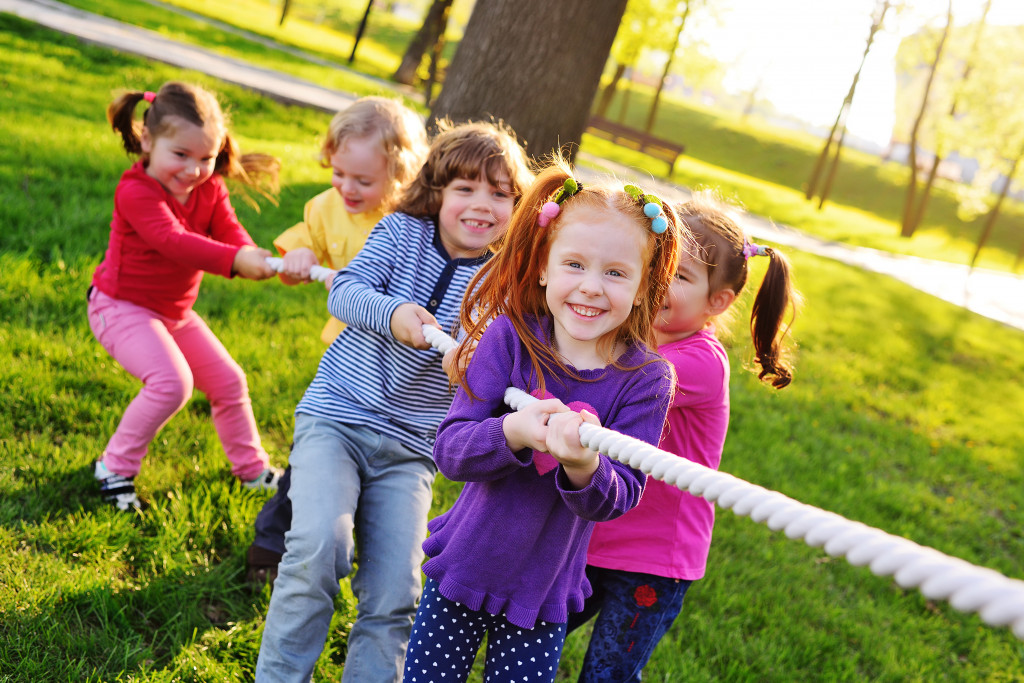Education is an integral part of a child’s development. Many parents struggle with determining how to teach their kids best the skills they will need to succeed later in life. As much as traditional education is important, teaching children life skills should be just as much of a priority.
Life skills are an integral part of any successful adult. They can help children learn problem-solving, communication, self-awareness, and other valuable lessons that cannot be taught in a classroom.
What Are Life Skills?
Life skills are defined as skills that help us manage our personal lives more effectively. They involve problem-solving, communication, self-awareness, decision-making, and creative thinking. These are not necessarily abilities taught in school but must be learned through experience. By introducing these skills early on, children can develop the ability to use them throughout their lives.
Teaching Problem Solving
One of the most critical life skills to teach is problem-solving. This skill helps kids identify problems and come up with solutions for them independently or with the assistance of others. This could include anything from assisting them in figuring out how to solve a math problem to helping them become more independent by creating solutions for themselves when faced with challenges in their everyday lives.
One of the best ways to teach problem-solving skills to children is through games. Games such as chess, checkers, and Go Fish can help children practice problem-solving in a fun way by forcing them to make decisions and come up with strategies that will put them in the best position to win.
Teaching Communication Skills
Another critical life skill that needs to be taught is communication. The ability to express oneself clearly and effectively can go a long way in helping people succeed later in life. Teaching children about communication can involve speaking respectfully with adults or using different tones when talking with peers or family members.
Additionally, teaching kids how to listen intently and ask questions will help them better communicate with others. Furthermore, this helps cultivate relationships that are essential for success down the line.
Children can also learn communication skills through summer camps. This is an excellent opportunity for kids to learn how to interact with their peers and adults positively. Often, summer camps for kids are structured to encourage them to express themselves and express their ideas without the fear of judgment. This can be highly beneficial for kids of all ages as it helps them become more confident and articulate when speaking with others.
Teaching Self-Awareness

Finally, it’s essential to teach kids about self-awareness—or what some may refer to as “emotional intelligence”—which involves understanding one’s emotions and those of others around them. This includes being able to recognize feelings such as anger or fear and then learning ways on how best to manage them constructively while also being mindful of other people’s feelings too.
This teaches kids how to think before they act so that they make more informed decisions throughout their lives which could potentially lead them down a path toward more tremendous success overall.
Moreover, self-awareness can be taught by having kids engage in activities such as mindfulness or yoga—activities that focus on being aware of one’s thoughts and feelings. Additionally, teaching kids to practice deep breathing or other relaxation techniques can help them better manage their emotions and reactions in stressful situations.
Teaching Critical Thinking
Critical thinking is an important life skill, allowing us to make better decisions and form our own opinions. Teaching children the importance of considering multiple perspectives and the ability to evaluate information objectively is invaluable in helping them become more open-minded and creative thinkers.
One way to teach critical thinking skills is through discussion-based learning. This involves getting kids to think about and discuss a particular topic, helping them learn to think for themselves as well as evaluate the opinions and ideas of others.
Teaching Resiliency
Being resilient is an important life skill that allows us to cope better with difficulties and setbacks in life. Teaching children how to stay positive and bounce back from tough times is essential in helping them become successful adults.
One way to teach resiliency is by encouraging self-reflection. This helps kids learn from their experiences and mistakes, enabling them to develop a growth mindset and develop the skills needed to succeed in life. Additionally, teaching children problem-solving skills can also help them become more resilient as it gives them the tools to work through any challenge.
The Bottom Line
All in all, teaching children life skills is an essential component of any education process because it helps prepare them for adulthood by equipping them with important tools such as problem-solving, communication, self-awareness, and decision-making, which are invaluable assets for anyone looking for success later on down the road. Teaching these tools early on will ensure kids have a better chance at reaching greater heights than ever!







